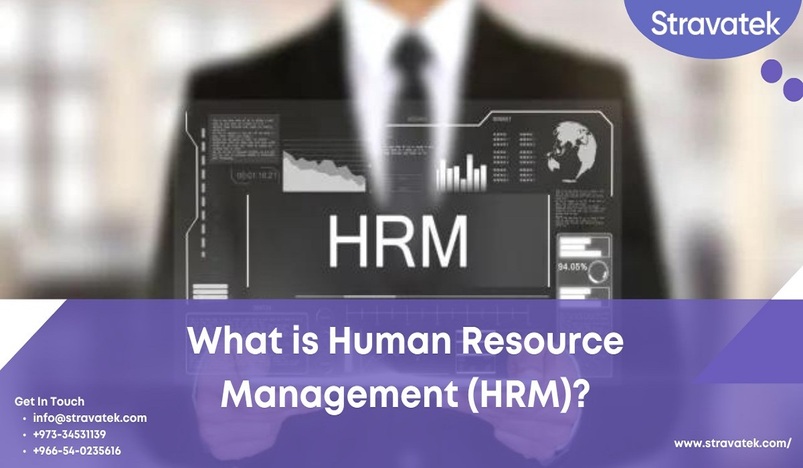HRM What is Human Resource Management (HRM)?

By
Shahbaz Ahmed - September 14, 2024

pixabay
Human Resource Management (HRM) is a dynamic and essential function within organizations that focuses on managing and developing an organization's most valuable asset—its people. HRM involves a broad range of activities, from recruiting and training to employee relations and compliance, all aimed at ensuring the organization's workforce is efficient, effective, and engaged. Visit: best recruitment agencies in abu dhabi
What is Human Resource Management?
Human Resource Management is the strategic approach to managing people in an organization. It encompasses various processes and practices designed to attract, retain, and develop employees to drive organizational success. HRM is integral in aligning the workforce with the organization's strategic goals while fostering a productive and positive work environment.
Key Responsibilities of Human Resource Management
- Recruitment Strategies: Effective recruitment is crucial for bringing in skilled employees who fit the company’s culture. This involves crafting job descriptions, sourcing candidates, and conducting interviews to find the best talent.
- Talent Management: This includes onboarding new employees, providing career development opportunities, and managing employee performance to help individuals reach their full potential.
- Employee Relations: Managing relationships between employees and the organization, addressing grievances, and resolving conflicts to maintain a positive work environment.
- Performance Reviews: Regular performance evaluations to assess employee achievements, provide feedback, and set goals for improvement.
- Training Programs: Developing and implementing training programs to enhance employee skills, support career growth, and adapt to new technologies or processes.
- Succession Planning: Identifying and preparing future leaders within the organization to ensure business continuity and leadership effectiveness.
- Compensation Strategies: Designing and managing competitive salary and benefits packages to attract and retain top talent.
- Employee Benefits: Administering benefits such as health insurance, retirement plans, and wellness programs to support employee well-being.
- HR Compliance: Ensuring that all HR practices comply with labor laws and regulations to avoid legal issues and maintain organizational integrity.
- Workforce Optimization: Strategically managing and deploying the workforce to achieve optimal productivity and align with organizational goals.
Enhancing Employee Retention
Employee retention is a major concern for HRM, as high turnover rates can impact productivity and increase recruitment costs. Here’s how HRM can enhance employee retention:
- Career Development: Provide clear career advancement paths and growth opportunities to keep employees engaged and motivated.
- Engagement Surveys: Conduct regular surveys to gather feedback, understand employee satisfaction, and address concerns before they escalate.
- Workplace Wellness: Implement wellness programs that support physical and mental health, including stress management, fitness programs, and counseling services.
- Competitive Compensation: Regularly review and adjust compensation packages to ensure they are competitive with industry standards.
Latest Trends in HR Technology
The field of HR technology is rapidly evolving, offering innovative tools and solutions to streamline HR processes and enhance efficiency. Here are some of the latest trends:
- HR Software: Advanced HR software platforms offer integrated solutions for managing recruitment, performance, and employee data. These tools help automate routine tasks and provide valuable insights.
- HR Analytics: Using data analytics to make informed decisions about employee performance, recruitment, and retention strategies. Analytics can help identify trends and improve decision-making.
- Diversity Initiatives: Technologies that support diversity and inclusion efforts, such as bias-reducing algorithms in recruitment and tools to track diversity metrics.
- AI and Automation: Implementing artificial intelligence and automation to handle repetitive tasks such as scheduling, onboarding, and employee queries, freeing up HR professionals to focus on strategic activities.
The Role of HR Leadership
Effective HR leadership is critical in shaping and executing HR strategies that align with organizational goals. HR leaders are responsible for:
- Organizational Culture: Developing and nurturing a positive organizational culture that reflects the company’s values and mission.
- Conflict Management: Addressing and resolving workplace conflicts to maintain a harmonious and productive environment.
- Employee Retention: Creating and implementing strategies to retain top talent and reduce turnover rates.
- Succession Planning: Preparing for future leadership needs by identifying and developing high-potential employees.
Best Practices in HRM
To optimize HRM practices and contribute to organizational success, consider these best practices:
- HR Policies: Develop clear and comprehensive HR policies that outline expectations, procedures, and employee rights. Well-defined policies help ensure consistency and fairness.
- Onboarding Processes: Create structured onboarding programs to help new employees integrate smoothly and quickly become productive members of the team.
- Staff Development: Invest in ongoing staff development to keep skills relevant and support employees' career growth.
- Employee Benefits: Offer a competitive benefits package that meets employees' needs and supports their well-being.
Conclusion
Human Resource Management is a vital component of any organization, focusing on managing and developing the workforce to achieve strategic objectives. By effectively managing recruitment, talent development, and employee relations, HRM ensures that employees are engaged, productive, and aligned with organizational goals. Staying updated with the latest trends and technologies in HRM can further enhance the effectiveness of HR practices and contribute to organizational success.
For those seeking to implement best practices in HRM, explore Best Human Resource Management by Stravatek. Stravatek offers comprehensive HR solutions designed to address the evolving needs of modern organizations, helping you manage and develop your workforce effectively. This article is written by The MediaGale.

By
Shahbaz Ahmed - September 14, 2024

.jpg)
.jpg)


Leave a comment